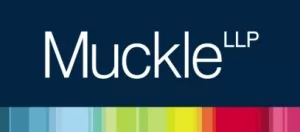Businesses now have a useful tool to help them achieve a fairer workplace, as Muckle LLP partner Paul Johnstone explains.
As part of the strategy for improving equality of opportunity for workers in the region, Equality North East has developed a user-friendly benchmarking standard for small and medium employers to assess how well they deal with equality and diversity issues within the workplace.
Why create a benchmark?
The standard has been designed as a practical tool to support businesses in being an "employer of choice" for current employees and prospective applicants - and also for the potential customers who may use the services and products of that organisation.
The standard has been developed to offer businesses practical help to:
- Achieve tangible business benefits
- Reduce the risk of discrimination claims
- Achieve fairness in the workplace
It will do this by promoting an inclusive culture that embraces and promotes diversity.
What makes up the benchmark?
The main components of the standard are:
- Leadership commitment to equality
- Policies and procedures to actively promote
equality
- The promotion of a culture that embraces diversity
Employers have the choice of using an initial self-assessment form or speaking directly to an equality adviser. The initial assessment will help an employer to benchmark where the organisation currently stands and identify any support needed to help the organisation to improve business practices.
A supporting tool kit is available to help organisations identify any weaknesses and areas for improvement. The kit includes:
- Template policies and procedures
- Good practice guidance sheets
- Face to face support
- Links to organisations offering specialist support
- Guidance on discrimination law
Equality and diversity and the public sector
Failing to operate in accordance with good employment practice may have long-term adverse financial consequences for businesses that rely on securing work through the public sector competitive tendering process.
Public sector organisations have a positive duty to promote gender, race and disability equality, which requires them to ensure that sub-contractors operate in a manner that is consistent with the principles of equal treatment and fairness. Obtaining the equality standard would be one way to demonstrate that your organisation is aware of its responsibilities in this area.
"Exciting news"
Ranjana Bell, the Chair of the region's first ever Equality and Diversity Partnership and a board member of the Women's National Commission, states, "The Partnership is an excellent way to ensure that we are all working together to improve the quality of life for the people in the North East.
"This is about everyone that is why we take a social inclusion approach to what we do. I look forward to seeing how the benchmarking standard develops and supports the partnership's agenda".
Kevin Rowan, Regional Secretary of TUC Northern, and Chair of the Equality and Diversity Partnership Employment and Skills Task group, says, "The equality standard is exciting news. A benchmarking tool which supports both the business community and its employees in a practical way is a very positive step towards improving levels of economic and social inclusion in the North East".
The content of this article is intended to provide a general guide to the subject matter. Specialist advice should be sought about your specific circumstances.
We operate a free-to-view policy, asking only that you register in order to read all of our content. Please login or register to view the rest of this article.


